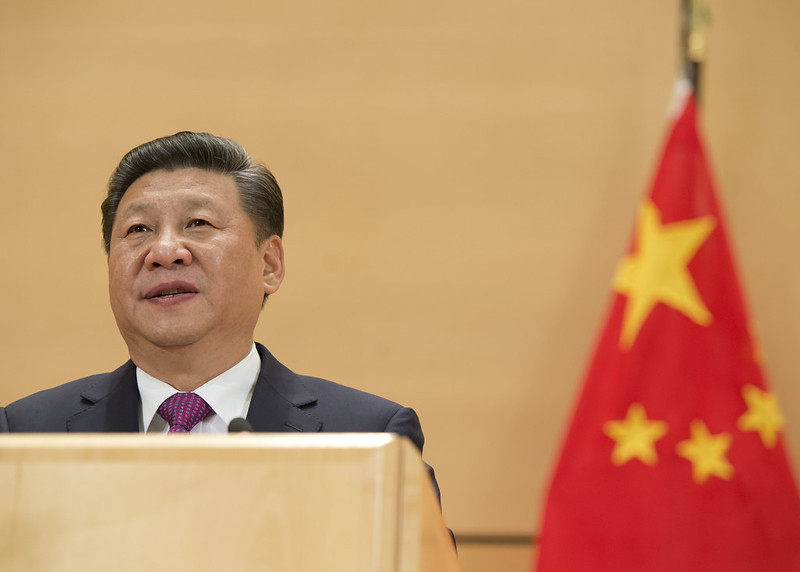The Politics Of Disaster Relief
After a 7.0 magnitude earthquake struck Haiti, the aftershock reached China in ways that few anticipated.The earthquake forced Chinese leaders to navigate the tricky politics of disaster relief.
On April 16, Asia and Latin America Program Director Margaret Myers joined Mahieash Johnney of Ada Derana Television on State of the Nation to discuss new trends in Chinese overseas economic engagement and domestic economic development.
“China is encountering all sorts of debt-related challenges globally, this includes in Latin America and the Caribbean … but also when you look at the numbers this is not specifically a one region phenomenon.”
“The reason we have seen a real decline, especially in policy bank lending—so that’s China Development Bank, China Export-Import Bank, the main policy banks that have been active in delivering the Belt and Road Initiative—is because there is a sense that China’s own interests at home, China’s domestic economic objectives are best served by focusing the attention of the policy banks more at home these days and then having Chinese companies and in many cases commercial banks ... carry out a lot of what the Belt and Road was initially intended to do.”
“We are seeing right now a drawdown in these major multi-million dollar and multi-billion dollar deals to countries, often backed in oil in certain cases. Those are a thing of the past.”
“Instead what we are seeing are smaller deals that are focused on sectors that China deems most critical to its economic recovery.”
“China felt that it was mitigating risk by backing a lot of these loans in oil, but that didn’t pay out as oil prices dropped, and now there is a real payment crisis [in Venezuela], and in other places like Ecuador.”
“The implications are both related to China’s actions and the actions of the governments that have made these decisions…. There are decisions made by governments to take on these loans at moments when they probably should not have, or they should not have at the terms that were agreed upon.”
“Another issue that we see across the board … is a tendency for a lot of these deals to be made behind closed doors with a considerable degree of opacity. That makes it much more difficult to monitor them and to ensure for all parties involved that [these deals] are progressing in a responsible manner and are indeed feasible from [both] an economic and financial perspective for the country.”
“China still has many engines of growth that it can rely on and indeed is shifting somewhat its model of overseas engagement … focusing on certain sectors that will promote development at home.”
“China will continue to grow at moderate rates in the coming years.”
“There are of course challenges that China is facing right now, including as concerns the real estate market, which is very difficult to manage, and that has made China rely even more heavily on innovation and productivity. Much will depend on whether China is able to boost productivity by focusing more or less on innovation-related sectors both at home and overseas.”
“I think in the Global South especially, because a lot of these markets are blocked in the Global North, we will see an absolute surge, if not continued level of activity in the sectors that China has called 'new infrastructure'.”
After a 7.0 magnitude earthquake struck Haiti, the aftershock reached China in ways that few anticipated.The earthquake forced Chinese leaders to navigate the tricky politics of disaster relief.
At the Inter-American Dialogue, José Miguel Insulza described the events of September 30, in which Ecuadoran police brought the country to a standstill after they rioted and trapped President Rafael Correa in a Quito hospital for several hours.
Hugo Chavez, the Venezuelan president, has clearly been enticed by the Libyan drama, where his longtime friend and ally, Muammar al-Qaddafi, is under siege from rebel forces.
 UN Geneva | CC BY-NC-ND 2.0
UN Geneva | CC BY-NC-ND 2.0